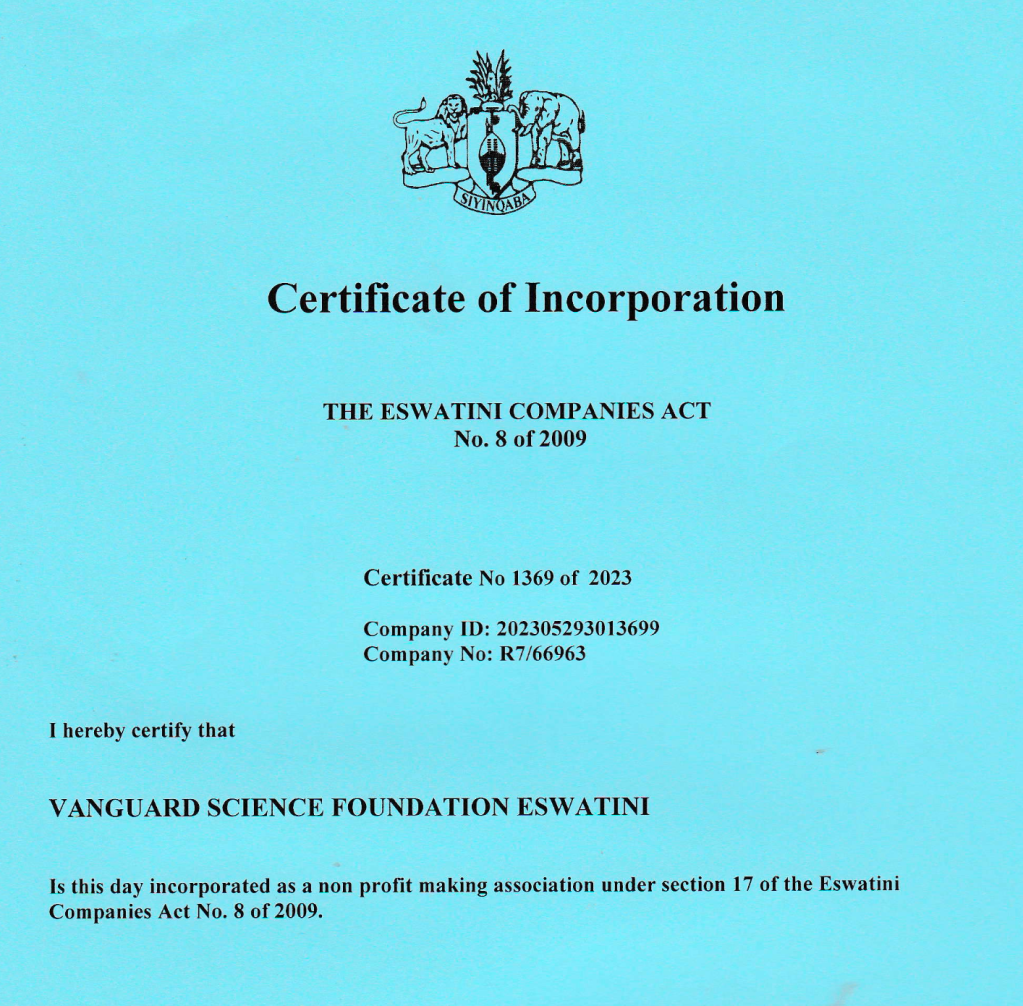
In June, I registered an NGO called Vanguard Science Foundation in Eswatini, a small land-locked country in Southern Africa. The intention is to help train and encourage science teachers in the country to teach the curriculum in the most effective way possible. Most schools lack basic science equipment yet form 5 students are examined on laboratory technique. It is well-known that laboratory work can reinforce learning of the theory side of the curriculum.
Our aim is to show simple ways that teachers can make their lessons more inclusive and relevant in a limited resource setting.
It’s early days yet. I am not yet in country but will move there in late September. My ‘day job’ is online private tuition which means that I have quite a bit of spare time. Two of the directors are Swazi citizens who have a lot of useful connections. It is officially a section 17 company which is the name for non-profits in the country. I will be looking into getting funding. But as I will be donating my time for free, the overheads will be very low.
I used to live in Eswatini (2004 – 2007) so I am delighted to be going back. Many years ago, I volunteered for VSO (Voluntary Service Overseas) in Zimbabwe. That is where my love for Africa began. But currently I live in Georgia (the country, not the state) and have some logistical hurdles to cross, not least getting my two cats from here to Eswatini.
Education in Eswatini is underfunded and as I mentioned, under resourced. The Form 5 (EGCSE) exams are broadly based on the UK GCSEs (they used to set the UK exams but then they made their exams in-country). The science exams are roughly equivalent to foundation level GCSEs in the UK but the pass rates are very low. There is the language barrier for one thing. English is spoken in Eswatini but technical language is a different matter and there are cultural and social issues such as students’ lack of familiarity with the context of exam questions.
A simple approach would be to meet with science teachers and discuss ways in which they can use available resources to present the course in an interesting fashion. When I taught in Zimbabwe in the 1990s, we were issued with a science teachers’ handbook that had a compendium of great ideas for teaching chemistry, biology and physics from home-made chromatographs to simple projectile labs.
It may be possible once I get funding to provide some basic lab equipment There are companies based in Africa that construct affordable science equipment so we may be able to use them. There are initiatives with the University of the Western Cape (Science Learning Initiative for Africa) that operate 1-3 day workshops in the Western Cape. We could learn from them.